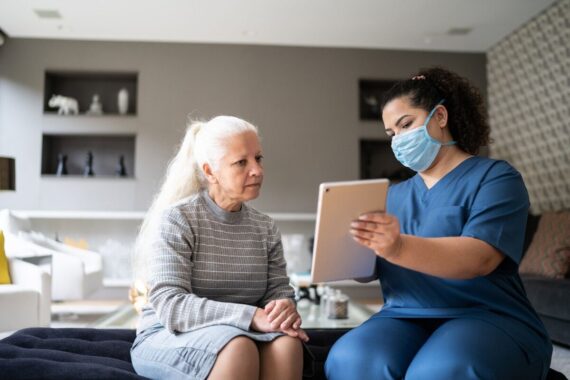London GPs to send patients questionnaire on housing and loneliness

GPs in East London will be asking patients questions regarding housing and finances, to help identify problems that can negatively impact their health and direct preventive social prescribing.
Around 500,000 adults in the London boroughs of Barking & Dagenham, City of London, Hackney, Havering, Newham, Redbridge, Tower Hamlets and Waltham Forest will be asked four yes/no questions by their GP practice as part of a new campaign.
The questionnaire, which will be send via text message or carried out during a routine interaction with the practice, will include questions such as:
- Do you have problems with your housing? (For example damp, overcrowding, or insecure tenancy)
- Do you have difficulty making ends meet at the end of the month?
- Are you lonely?
- Do you find it hard to understand information given to you about your health, or treatments you may be receiving?
East London ICB and Queen Mary University, who designed the campaign, said that GPs will use the information to ‘provide personalised health advice and signpost to local services that can help address the problems directly’.
Currently 80% of practices in north east London have signed up to take part in the campaign which starts this month and will run for two years, with ‘a view to implementing the approach as routine in the longer term to help people get the support they need and address health inequalities in the region’.
Dr Jagan John, a GP and board member at NHS North East London, said: ‘There are many different factors that can affect a person’s health so taking a few moments to read and respond to these text messages will help us provide personalised advice to people in north east London that can support them to improve their wellbeing.
‘The information we receive will enable us to offer tailored health recommendations or signpost people to services that can offer them specialist support with a range of issues.
‘It will also help us anticipate demand for services and to develop new initiatives that directly address the needs of our local communities.’
Keith Prescott, clinical effectiveness group’s programme lead at Queen Mary University said: ‘Many people in north east London are living without some of the essential means for good health, like quality housing and good pay.
‘We are working with local NHS teams to counter the impact of these wider determinants of health in the region. If you receive the text message, please respond – it will make a difference. It will enable your GP to signpost you to services that can help, and also provide you with the best and most appropriate healthcare.’
Visit Pulse Reference for details on 140 symptoms, including easily searchable symptoms and categories, offering you a free platform to check symptoms and receive potential diagnoses during consultations.
Related Articles
READERS' COMMENTS [4]
Please note, only GPs are permitted to add comments to articles










As a screening programme, presumably there is evidence for efficacy and cost-effectiveness? Be nice to see it if the proponents of the programme can provide it please?
Presumably the extra workload is being properly funded through a LCS or similar – be nice to know if it is or isn’t, Pulse?
It is obviously more social care than medicine, and another extension of our role.
It may be useful to study the outcome of this compared to workload. If it is a sms with replies going straight to social prescribers it may not be a major workload issue for GP’s. If GP’s are expected to read and action the replies, it may not be an effective use of a scare resource. The short and medium term outcomes may provide the answers
How much funding is coming direct to the practice. The engagement I
Should be directly proportional to the finding per patient to do this. Otherwise no is a complete sentence.
The ongoing mission-creep of the medicalisation of social issues continues apace.
The GP is Best Placed for all your woes……alcohol and obesity are diseases to be medically treated, and now poverty and loneliness are our problem to sort out too.
Generating new work with no extra resources doesn’t help the poorly housed and lonely, it just increases the bitterness they feel when their hopes have been raised then crushed.